The Mary Reynolds Babcock Foundation is pleased to announce we have signed onto the Due Diligence 2.0 commitment alongside dozens of other asset owners, allocators and advisors. While the Foundation centers racial equity in our grantmaking across 11 Southern states, embracing this initiative is a milepost in our journey to invest our endowment with an explicit racial equity lens. This means allocating more capital to emerging managers, communities, entrepreneurs and stakeholders of color.

The pernicious racial wealth gap that throttles the entirety of the American economy is especially acute in the asset management industry. White male asset managers control 98.6 percent of the investment industry’s more than $80 trillion in assets under management, according to the Knight Foundation’s Diversity of Asset Mangers Research Series. That means firms owned by women and people of color manage a mere 1.4 percent. The numbers are bleaker for Black women, who receive less than 0.35 percent of all venture capital funding, according to Crunchbase. The financial industry’s due diligence standards tend to direct capital to the same firms, which are overwhelmingly white, thereby reinforcing these inequities. MRBF seeks to do better by implementing nine suggestions in the Due Diligence 2.0 commitment.
One tenet, for example, is to contextualize fees. Investors may screen out smaller firms due to higher fees, which may be the result of undercapitalization, market research or capacity growth. The commitment recommends working with emerging managers to tie fundraising success to future fee reductions. Another tenet is to be willing to go first. Consider acting as a seed investor rather than waiting for later closings to foster fundraising momentum. The commitment also reminds investors to be forthcoming about hurdles like minimum thresholds to be respectful of managers’ time.
“More transparency fosters higher levels of fairness and equity,” said MRBF Impact Investment Officer Julius Kimbrough. “At the Babcock Foundation we talk openly about our values-first investment practices, like not investing in fossil fuels. Due Diligence 2.0 gives us an opportunity to increase transparency in our investment decision making processes. Anything that turns the informal into the formal, that makes the opaque transparent is a win for the communities we serve at Babcock.”
“Due Diligence 2.0 signatories like MRBF are making critical commitments toward removing long-standing barriers to racial equity in finance,” said Rachel J. Robasciotti, CEO and Founder of Adasina Social Capital. “The commitment offers us all an opportunity to redistribute access and shift the power dynamics, share prosperity, and create a more inclusive economic landscape.”
The Foundation is grateful to the authors of the Due Diligence 2.0 commitment for this opportunity, including Robasciotti, Brent Kessel, Tracy Gray and Erika Seth Davies. As a philanthropic foundation, Babcock’s primary function is grantmaking. Our board and staff believe moving the needle on social, economic and racial justice means leveraging all our resources.
